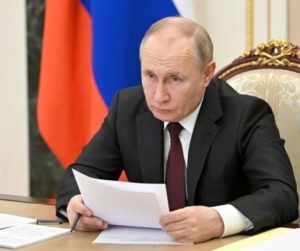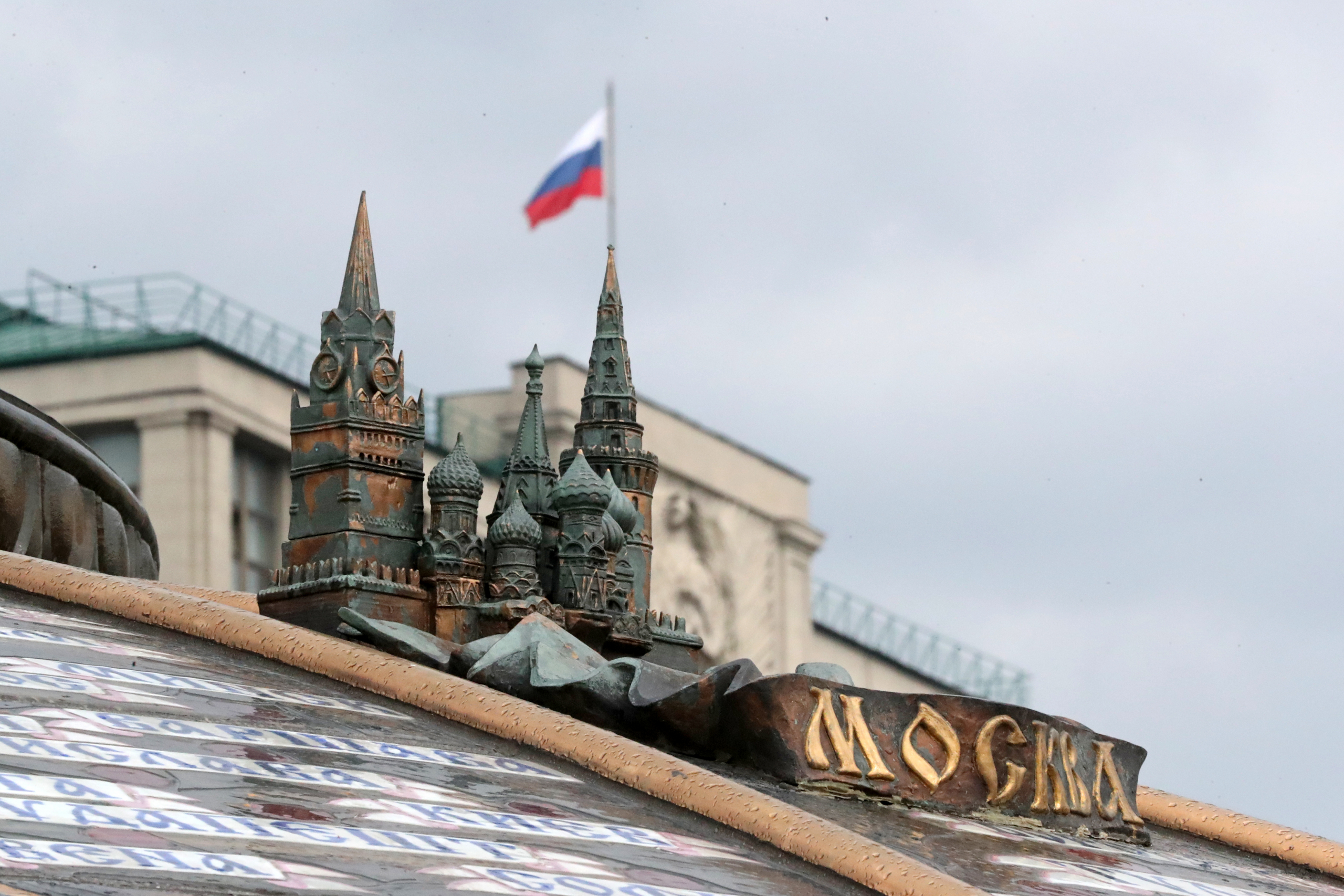It was clear from the moment he consolidated power and became president of Russia at the dawn of the 21st century, and on so many occasions since, what Vladimir Putin ultimately has in mind, what he dreams of achieving. But now, as he reaches 70 years of age, a weak, divided and confused western alliance has provided him with the opportunity he sought for lo these many years. He is in a stronger position than ever to fulfill his far-flung ambition and cement an expansionist legacy, which almost certainly will not stop at his conquest of the former Soviet republic of Ukraine.
 The record is clear, and increasingly so is Putin’s transparent goal of restoring the Soviet empire that dissolved in 1991 following seven decades of totalitarian tyranny. After Boris Yeltsin rose to become the first president of the successor Russian Federation and spent the remaining years of the 20th century picking up the pieces of the fallen superpower, he hand-picked Putin as his successor, undoubtedly because of Putin’s KGB bona fides.
The record is clear, and increasingly so is Putin’s transparent goal of restoring the Soviet empire that dissolved in 1991 following seven decades of totalitarian tyranny. After Boris Yeltsin rose to become the first president of the successor Russian Federation and spent the remaining years of the 20th century picking up the pieces of the fallen superpower, he hand-picked Putin as his successor, undoubtedly because of Putin’s KGB bona fides.
Animated by his belief that the world-altering dissolution of the Soviet Union represented the “greatest geopolitical catastrophe of the [20th] century,” Putin went to work restoring Russian rule in the 14 vulnerable post-Soviet breakaway republics by any means necessary. And no doubt he would also dearly love to reinstall pro-Russian governments in eastern European countries formerly enslaved by the Soviets – including Poland, Hungary, and the Czech Republic.
One of the new Russian president’s initial acts was to annex the constituent republic of Chechnya in 2000, and brutally tamp down an ongoing rebellion there. He followed in 2008 with attacks that brought the former Soviet republic of Georgia to its knees in less than a fortnight. In 2014, following the displacement of the pro-Soviet president of Ukraine, Putin lined up his heavy artillery again and added Ukraine’s Crimean Peninsula to his list of conquests. And now he has pulled the same page from the playbook for the remainder of Ukraine. Add to that the puppet government installed in Belarus, which served as a staging area for Putin’s attacks on the capital city of Kyiv, and Putin is slowly but surely rebuilding the former Soviet empire – one brick at a time.

Vladimir Putin (Photo by Alexei Nikolsky\TASS via Getty Images)
But somehow, despite his background in the spy game, President George W. Bush, entering office at the same time as Putin, famously claimed, “I looked the man in the eye. I found him to be very straightforward and trustworthy. We had a very good dialogue. I was able to get a sense of his soul; a man deeply committed to his country and the best interests of his country.” Those glowing words hardly prevented Putin from moving on Georgia in the waning days of the Bush administration.
Even a cursory examination of Putin’s background should never have left any doubt about what animates the Russian strongman. He had worked as a KGB foreign intelligence officer for 16 years before joining Yeltsin’s team, then rising to prime minister in August 1999, and president months later. And Putin is now daring Joe Biden, just as he did Bush in his invasion of Georgia and Barack Obama during his annexation of Crimea, to discard the principle that Ukraine has the right to exist as an independent republic. But then again, Biden had already inexplicably and gratuitously announced that he is both willing to negotiate, with almost 200,000 Russian troops lining the Ukrainian border, and has taken military options off the table. Exactly what kind of signal does that send to a leader trained in intelligence, who is expert at reading the relative strength and vulnerability of his adversaries?
His invasion of a sovereign neighbor has removed all doubt that restoration of national glory was, is, and will always be the end game for the Russian president. Thus, rest assured Ukraine is hardly the ultimate prize. It is merely a large piece of the puzzle known as the Soviet empire Vladimir Putin fully intends to assemble once more.
~ Read more from Tim Donner.




